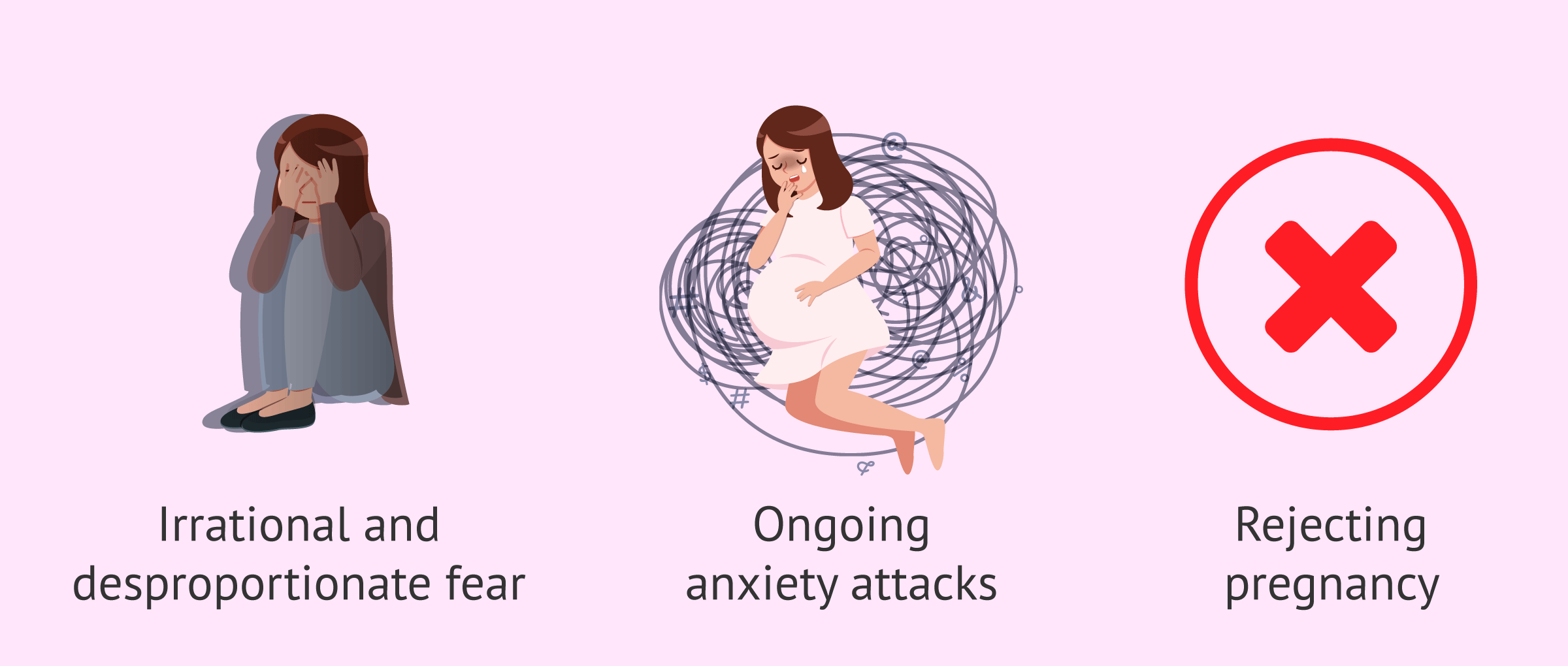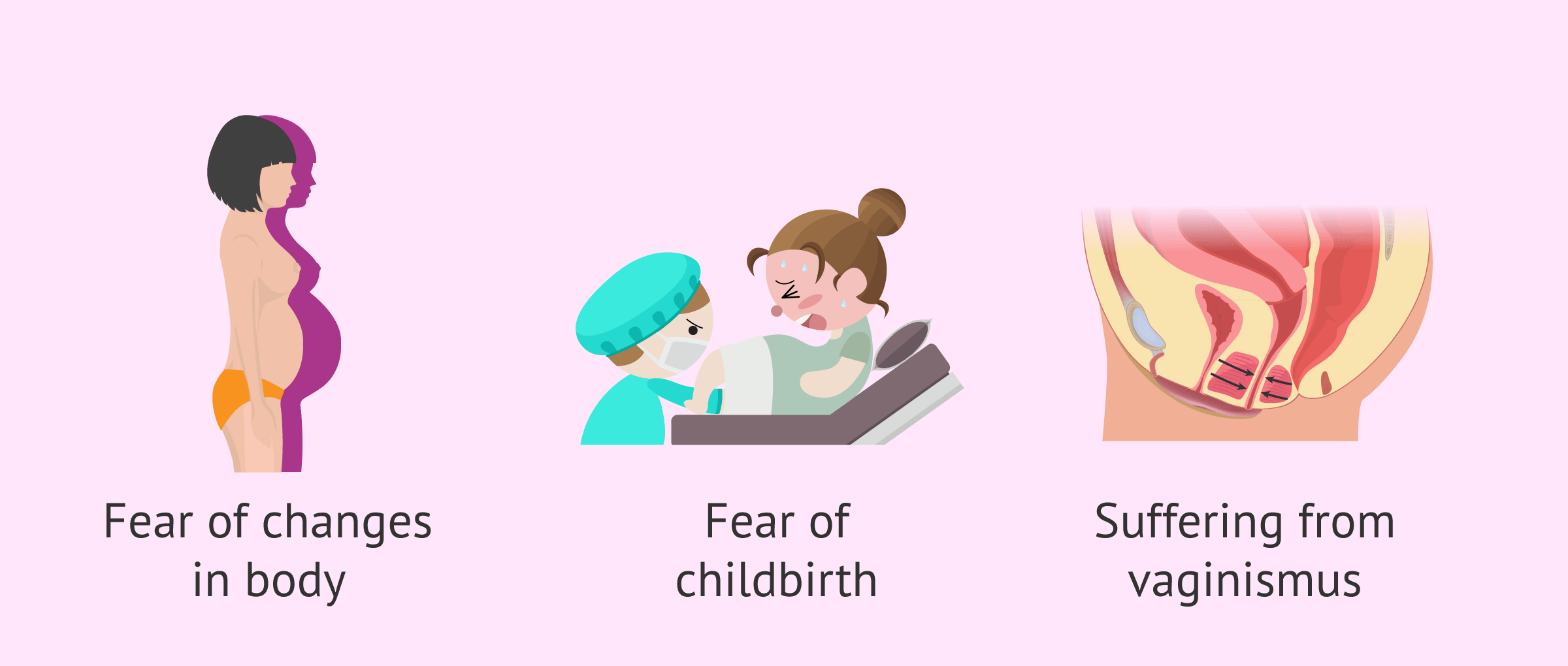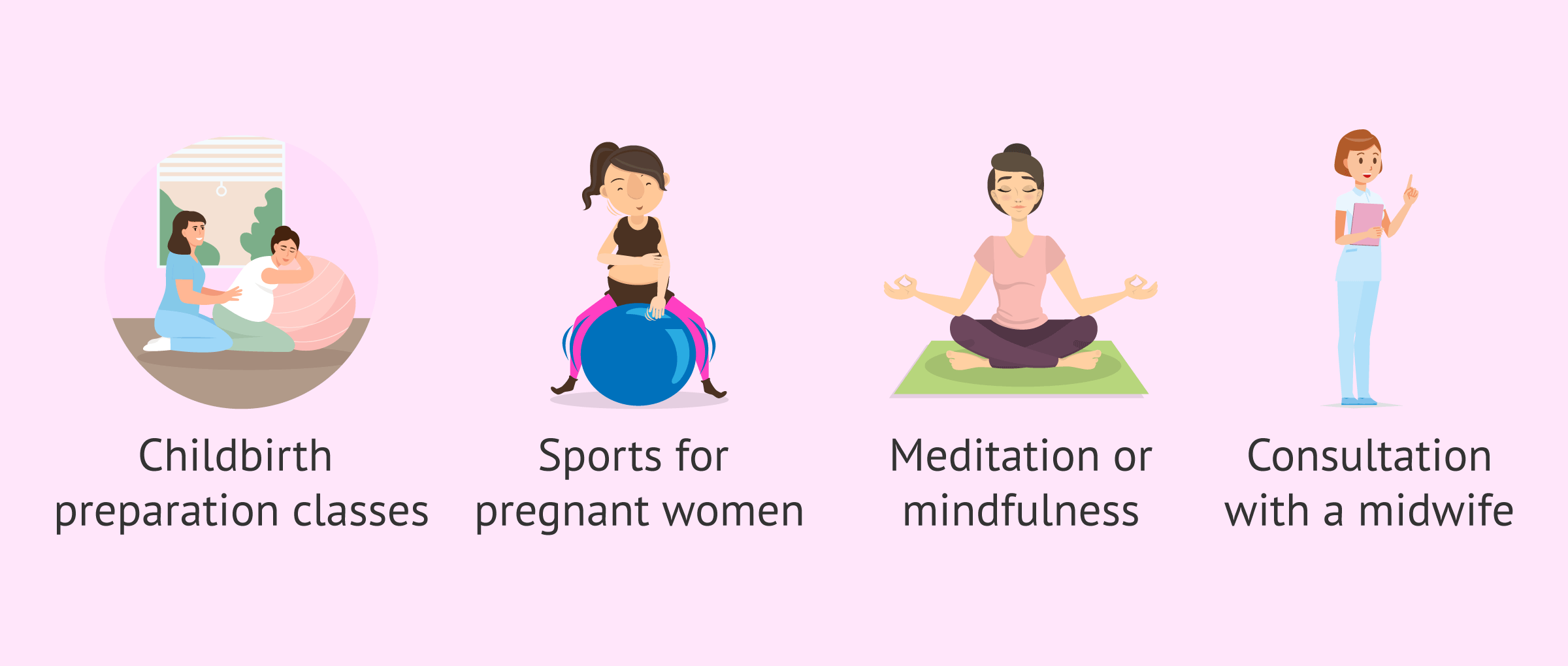Tokophobia is a disorder that involves having an intense fear of pregnancy and childbirth. It is suffered by both first-time women and women who have already gone through a previous pregnancy, which often resulted in a traumatic birth.
Although it is normal to have a certain fear of everything involved in pregnancy and the arrival of a baby, the deep anxiety felt by women with tokophobia makes this fear pathological and inexplicable.
About 14% of women worldwide suffer from tokophobia, and their prevalence is suspected to have increased from 2000 onwards.
Provided below is an index with the 8 points we are going to expand on in this article.
- 1.
- 2.
- 3.
- 3.1.
- 3.2.
- 4.
- 5.
- 5.1.
- 5.2.
- 5.3.
- 5.4.
- 6.
- 7.
- 8.
Definition of tokophobia
Tokophobia is defined as the irrational and uncontrollable fear of pregnancy and childbirth.
The term tokophobia comes from the Greek "tokos" (birth) and "phobos" (fear) and, as its name suggests, it is a phobia that must be treated by a specialist.
Tokophobia is also known by the names of parturifobia, maieusifobia and locquiofobia.
Symptoms and possible complications
When a woman gets pregnant for the first time, it's normal to be a little afraid of the way she's going to change her life from now on. There are also fears related to the evolution of the pregnancy, the health of the baby, etc.
However, tokophobia is characterized by very intense feelings in women who want to get pregnant or who are already pregnant:
- Irrational and disproportionate fear
- Recurrent anxiety attacks
- Tremors and sweating when thinking about pregnancy
All of this can lead a woman to refuse pregnancy even if she wants to have children or, if she is already pregnant, to choose to have a scheduled delivery by caesarean section under general anesthesia.
In the worst case scenario, a woman may even consider surrogacy in order to have children without having to go through pregnancy and childbirth.
Types and causes
Depending on whether fear and anxiety appear in the first pregnancy or in later pregnancies, we find two types of tokophobia:
Primary tokophobia
It affects women who have never been pregnant or who are new. The reasons why women suffer from primary tokophobia are as follows:
- Fear of the great responsibility involved in having a baby
- Concern about changes in her body
- Fear of suffering during childbirth
- Concern that the baby has an abnormality
- Having vaginismus or dyspareunia (pain during sex)
- Having been sexually abused or raped in the past
This type of tochophobia can appear in women both before and after pregnancy.
Secondary tokophobia
In this case the affected women are those who have already given birth to one or more children.
The main cause of secondary tokophobia is having suffered a traumatic birth in a previous pregnancy. Some examples of this are having had an obstetric malpractice, a badly cured episiotomy, a tear, etc.
More than tokophobia it could be said that the woman suffers uncured post traumatic stress and must also be treated by a specialist.
Another cause of secondary tokophobia may be postpartum depression.
How to overcome tokophobia?
The specialist in charge of treating tokophobia disorders is the perinatal psychologist.
In the first place, the most important thing is to look for the origin of the fears that the woman feels. In this sense, the specialists affirm that it is more difficult to treat primary tocophobia than secondary tocophobia, since the reasons for fear are unknown in order to be able to begin to delve deeper into them.
Some techniques or procedures recommended by perinatal psychologists or midwives to overcome the fear of pregnancy and childbirth are the following:
- Attend childbirth classes
- this is indispensable, because a woman who is afraid of giving birth has to know what she is going to encounter, recognize the symptoms she may have, and know how to act.
- Excersises for pregnant women
- in addition to meeting other women in similar situations, sport contributes to increasing women's safety, as they feel their bodies are better prepared to give birth. Yoga or Pilates are the best options.
- Doing meditation or mindfulness
- is a relaxation technique in which the woman is intended to achieve full attention to her consciousness, that is, to focus all her attention on the state in which she is present, here and now, and thus be able to understand what is happening to her.
- Giving birth in a birthing home
- these are rooms away from the delivery rooms, in which women have beds, mattresses, bathtubs, exercise facilities, etc. At all times they can be accompanied by the partner or relatives and birth is experienced as the natural and human process that it is. Childbirth homes are very famous in the UK.
- Resorting to a doula
- are women who advise and accompany pregnant women, but do not have any medical qualifications, as is the case with midwives. Doulas can help overcome tocophobia, especially through the emotional support they provide before, during and after childbirth.
In addition, it is advisable to consult with midwives about any doubts that may arise about motherhood, since the woman will face this stage being more aware of everything.
FAQs from users
How is tokophobia treated in a pregnant woman?
Tokophobia is defined as the irrational fear of pregnancy and childbirth. Like any other phobia, it can be treated by putting yourself in the hands of the right specialist. Psychological help, understanding of the couple and family support are essential to overcome it.
What does tokophobia stand for?
Tokophobia means being afraid of giving birth. In greek "tokos" means birth and "phobos" means fear.
What are the inconveniences of tokophobia?
Suffering from tokophobia and not being able to overcome it could lead to complications during labor making it even more painful.
Besides, tokophobia may also affect sexual relationships with your partner and even achieving pregnancy. Thus, it can be said that tokophobia leads to sterility to a certain extent.
Is it possible for men to suffer from tokophobia as well?
Yes, even men can be afraid of the partner's pregnancy due to all changes involved. Consequently, affected men can present erectile dysfunction and other types of disorders in relation to their sexuality.
Suggested for you
If you are afraid of giving birth and want to find out more about childbirth, we encourage you to read on here: Childbirth: preparation, types and possible complications
You can also get more information about the progression of pregnancy, symptoms and changes in the body in the following article: Pregnancy month by month.
We make a great effort to provide you with the highest quality information.
🙏 Please share this article if you liked it. 💜💜 You help us continue!
References
Bhatia MS, Jhanjee A. Tokophobia: A dread of pregnancy. Industrial Psychiatry Journal. 2012;21(2):158-159 (View)
Dimitrios Kanellopoulos, Kleanthi Gourounti. Tocophobia and Women's Desire for a Caesarean Section: a Systematic Review. Maedica (Bucur). 2022 Mar;17(1):186-193. doi: 10.26574/maedica.2022.17.1.186 (View)
O'Connell MA, Leahy-Warren P, Khashan AS, Kenny LC, O'Neill SM. Worldwide prevalence of tocophobia in pregnant women: systematic review and meta-analysis. Acta Obstet Gynecol Scand. 2017 Aug;96(8):907-920 (View)
Roland, Chamberlain. Management of tocophobic women. Section 4, Chapter 21
Storksen HT, Eberhard-Gran M, Garthus-Niegel S, Eskild A. Fear of childbirth; the relation to anxiety and depression. Acta Obstet Gynecol Scand. 2012 Feb;91(2):237-42 (View)
FAQs from users: 'How is tokophobia treated in a pregnant woman?', 'What does tokophobia stand for?', 'What are the inconveniences of tokophobia?' and 'Is it possible for men to suffer from tokophobia as well?'.





